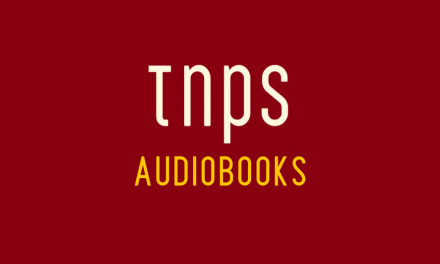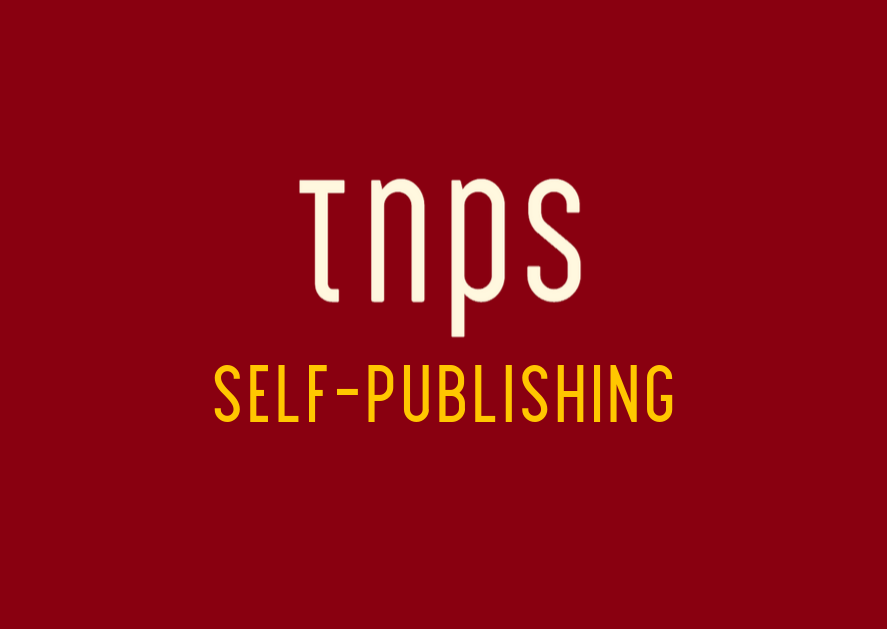Dan Conway, let me remind you of your own headline for the PA report that accompanied the image of you in the House of Lords: “Report on solutions to children’s reading crisis launched in Parliament.” Crisis? What crisis? According to the Francis Report that you have just welcomed, there is no crisis.
For the UK publishing industry, any national curriculum review is a seismic event, signalling new markets, shifting priorities, and significant investment in resources.
The response from the Publishers Association (PA) to Professor Becky Francis’s final report was, on the surface, warmly welcoming. Citing the “clear emphasis to boost reading and writing standards” and the “recommendation to draw on diverse and representative texts,” the PA positioned itself as an enthusiastic partner.
However, for publishing professionals who read the Francis report itself, the PA’s statement is a masterclass in strategic cherry-picking. It highlights convenient, commercially positive recommendations whilst conveniently ignoring the report’s most glaring omissions and most challenging proposals.
The PA’s response is less a good-faith analysis of the curriculum review and more a political manoeuvre. It uses a few agreeable points as cover to lobby against its real target – the Oak National Academy – whilst turning a blind eye to the report’s most profound silences and also its significant position shift on AI, which is at odds with the PA’s Luddite Fringe credentials.
The “Reading for Pleasure” Blind Spot
The PA’s celebration of a “clear emphasis to boost reading… standards” is the most telling omission. For an industry whose lifeblood is the creation of a nation of lifelong readers, the total absence of “reading for pleasure” in the 197-page report should have been the primary cause for alarm. The phrase is not used once.
So, Dan Conway,CEO of the PA, how do you square this with the PA’s clearly stated position (April 2025), at the launch of The Publishers Association and the All-Party Parliamentary Group on Publishing’s report Turning the page: A plan to revive children’s reading for enjoyment, that “The Department for Education should ensure that the national curriculum prioritises reading for enjoyment alongside reading skill development.“
Here you are, in Parliament at the launch.

And here you are, in The Bookseller, fully aware the Francis Report completely ignored the report you were party to, saying, “There are many aspects of the Review which we particularly welcome – the clear emphasis to boost reading and writing standards; the focus on creative subjects; and the recommendation to draw on diverse and representative texts in GCSE English Literature.“
Dan, let me break this to you gently. There is no “clear emphasis to boost reading and writing standards” in the Francis Report.
Let me remind you of your own headline for the PA report that accompanied the image of you in the House of Lords: “Report on solutions to children’s reading crisis launched in Parliament.“
Crisis? What crisis? According to the Francis Report that you have just welcomed, there is no crisis.
Yes, you yourself used that term. And rightly so. The National Literacy Trust stated clearly that “in 2025, the percentage of children and young people who … enjoyed reading was its lowest in 20 years.”
Yet Becky Francis, author of the nonsense report you have just welcomed, seems not to know that report from the National Literacy Trust exists.
Instead, the report doubles down on a technical, mechanistic approach to reading. It explicitly praises the “well evidenced” role of phonics and recommends the Phonics Screening Check “remains“. It makes no mention of the 2022 UCL report that heavily criticised this “obsessive” approach as a key factor in children’s failing to learn to read, in England, the home of the English language.
The UCL described the way primary school pupils are taught to read in England as “uninformed and failing children”, and “not underpinned by the latest evidence.”
The Francis Report is either unaware of, or chose to deliberately ignore, that report.
Where the Francis report does focus on English, its concerns are technical: the over-specification of “advanced and overly theoretical” grammar at Key Stage 2. Its solution is not to carve out space for narrative, creativity, or pleasure, but to replace this with “grammar in use” and a new “oracy framework.”
Let me add here that both these proposals are to be welcomed. But not at the expense of letting children learn to enjoy reading.
Yet the PA, representing an industry deeply concerned by the documented decline in children’s reading for pleasure, and which itself described the situation as a “children’s reading crisis,” greets this with silence. It appears politically expedient to ignore the report’s single biggest failing – its complete disinterest in why a child might want to read a book – in order to praise the commercially attractive (and long overdue) recommendation for “more diverse and representative texts.“
So again, let’s welcome the few areas where the Francis Report gets it right, but when the PA praises a “boost to reading” that simply doesn’t exist in the report, it conflates a call for diverse book-lists with a strategy to create actual readers.
But it gets worse.
The Elephant in the Room: Artificial Intelligence
The second “cherry-pick” is the PA’s complete silence on Artificial Intelligence. This is not an oversight. It is a strategic decision to ignore one of the report’s most significant “future-proofing” proposals, precisely because it conflicts with the PA’s very public, albeit nonsensical position that AI is a commercial and existential threat to traditional publishing.
Yeah, when it comes to hypocrisy, Conway knows no bounds. This is the same Dan Conway that screamed “the great copyright heist cannot go unchallenged” in February 2025, nailing his Luddite Fringe colours to the mast.
This of course, juggled alongside the Publishers Association Insight Series “focusing on how publishers can Integrate AI into business processes and Streamline and content management,” which launched just a month later on the PA website. You couldn’t make it up.
So what did the Francis Report have to say abut AI? Nothing the PA wants to be associated with, that’s for sure. In fact, the Francis report, far from ignoring AI, is highly critical of the current state of the “Computing” curriculum, labelling it as “exceptionally short” and not fit for purpose.
Hey, that reminds me of the PA!
The report’s recommendations are unambiguous: it calls for the “limited references to AI” to be addressed, for AI to be “explicitly incorporated” into the curriculum, and for the entire GCSE Computer Science to be replaced with a broader “Computing GCSE” to reflect this new reality.
Furthermore, the report directly addresses the risk of its proposals becoming obsolete. It recommends a “rolling programme of light-touch minimalist updates” specifically for “disciplines affected by rapidly evolving digital technologies.”
This is a clear directive to place AI and data science at the core of a modern education. For the PA, this is the least welcome news imaginable. A slippery slope that publishing might soon find itself on.
By failing to even acknowledge this major component of the review, the PA reveals its hand. Its response is not a summary of the report; it’s a list of the only bits it can comfortably live with.
The Real Agenda: Oak National Academy
So, if the PA is ignoring the report’s failure on reading for pleasure, and ignoring its challenging proposals on AI, what is its real focus? The statement’s second half makes this perfectly clear: the Oak National Academy.
For an international audience, Oak is the ghost at the banquet. It was born from the 2020 pandemic lockdowns as an emergency, state-funded online classroom to provide free video lessons and resources for pupils stuck at home. The problem for publishers began when the government decided to make this temporary fix permanent, turning it into a multi-million-pound “arm’s length body” to create and curate a full, free national curriculum.
This intervention was deemed necessary precisely because the commercial sector, with its disparate, paywalled platforms, was structurally incapable of providing a universal, single-point-of-access solution during that national crisis. For schools, especially those with limited budgets, Oak remains a vital baseline resource. For the PA, however, it is an existential threat – a state-subsidised competitor that, as the Financial Times has highlighted, publishers fear will dominate the market and stifle private innovation.
This explains the true purpose of their response. The praise for “diverse texts” and “creative subjects” is merely the diplomatic prelude to the PA’s true message. The implementation of this new curriculum, the PA argues, requires “millions of pounds” of private investment from publishers. This investment, they warn, is “massively under threat” from the DfE’s “arm’s length body, Oak National Academy.“
This is the transactional heart of the PA’s response. It leverages the cost of curriculum reform as a political weapon. The implicit deal being offered to the government is: You want us to create the resources for your new oracy frameworks and diverse literature lists? Then you must fix the “Oak problem” that threatens our business model.
For publishing professionals, this is a critical distinction. Our trade body has not simply blindly welcomed a new curriculum that does not reflect PA values or fix a genuine problem (the reading crisis); it has selectively filtered it to serve a specific lobbying objective. It has ignored the report’s profound failures on reading for pleasure and its existential challenges on AI, all to focus its firepower on a state-backed competitor.
The curriculum review will indeed reshape our industry. But as professionals, we must respond to the report that was actually written – not the convenient, heavily redacted version the PA wants to us believe it is backing.
This post first appeared in the TNPS LinkedIn newsfeed,




